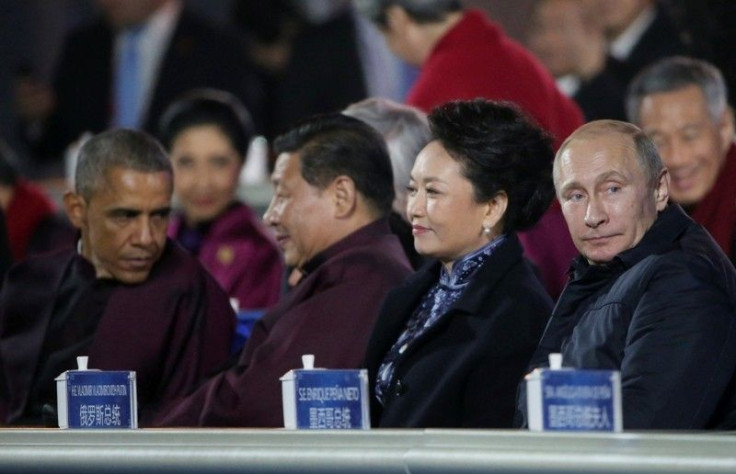China Asks US To End “Microphone Diplomacy” And Resolve Differences Bilaterally

Even as China’s activities in South China sea and the recent cyber attacks on the U.S. government systems have strained the U.S-China relations, China has reached out to the United States with an appeal to give up the path of “microphone diplomacy” and solve differences bilaterally through dialogue. It wanted the U.S to take up initiatives for creating conducive atmosphere to allow the successful U.S. visit by President Xi Jinping this year.
Wu Xi, deputy chief of mission at the Chinese embassy in Washington, said individual issues should not overshadow the overall U.S.-China relationship and that common interests should outweigh such irritants. “Resorting to microphone diplomacy, or pointing fingers at each other, will not solve any problems," Wu said, while addressing a meeting on Capitol Hill to mark the 10th anniversary of the U.S. Congress's U.S.-China Working Group. She said booming bilateral trade of $550 billion as of 2014 will "far outweigh" the differences between the countries.
Need For Dialogue
"The right choice is to recognise our differences, respect each other and engage in real dialogue," the Chinese diplomat noted and added that the “choice made today will decide the future of two great nations, as well as the entire world.” Wu was alluding to recent tussles between Washington and Beijing over China's assertive territorial claims in the South China Sea that has been sparking fears of an armed conflict. A massive cyber attack on the U.S. government in June is also blamed on Chinese hackers though China has rubbished the allegations.
Wu wanted the two sides to use the annual meeting of the U.S.-China Strategic and Economic Dialogue from June 22-24, and the U.S. visit of a high ranking Chinese military official, "to articulate the outcome and deliverables" for Xi's September visit to Washington. Wu said she does not see any U.S.-China "tensions," as the countries share a common interest in peace and stability in the Asia-Pacific and have mechanisms to address differences. There is no alternative but to succeed in the interests of our two nations and the world, she said.
Carter Meets General
Meanwhile, U.S. Defense Secretary Ash Carter met a top Chinese general on Thursday and reiterated the U.S. call to end land reclamation in the South China Sea. But he also stressed that Pentagon is always committed to expand military contacts with China. General Fan Changlong, a deputy head of China's Central Military Commission, was on a visit. Carter mooted the expansion of "a sustained and substantive U.S.-China military-to-military relationship.” He called up China and other rival claimants in South China Sea to halt militarisation of the disputed territory and pursue international law to resolve conflicts amicably.
(For feedback/comments, contact the writer at k.kumar@ibtimes.com.au)





















